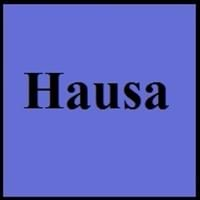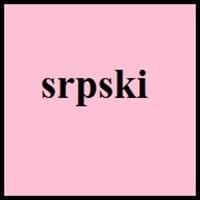Hausa vs Serbian
- Hausa language is the most important and the best known of the Chadic branch.
- There are about one-fourth of Hausa words come from Arabic.
- Serbian language was derived from the Old Church Salvic, as the language was commonly spoken by most of Slavic people in the 9th Century.
- Serbian language is based on Stokavian dialect.
Hausa and Serbian Language History
Comparison of Hausa vs Serbian language history gives us differences between origin of Hausa and Serbian language. History of Hausa language states that this language originated in 14 whereas history of Serbian language states that this language originated in 11th Century. Family of the language also forms a part of history of that language. More on language families of these languages can be found out on Hausa and Serbian Language History.
Hausa and Serbian Greetings
People around the world use different languages to interact with each other. Even if we cannot communicate fluently in any language, it will always be beneficial to know about some of the common greetings or phrases from that language. This is where Hausa and Serbian greetings helps you to understand basic phrases in Hausa and Serbian language. Hausa word for "Hello" is sannu or Serbian word for "Thank You" is Хвала лепо (Hvala lepo). Find more of such common Hausa Greetings and Serbian Greetings. These greetings will help you to be more confident when conversing with natives that speak these languages.
Hausa vs Serbian Difficulty
The Hausa vs Serbian difficulty level basically depends on the number of Hausa Alphabets and Serbian Alphabets. Also the number of vowels and consonants in the language plays an important role in deciding the difficulty level of that language. The important points to be considered when we compare Hausa and Serbian are the origin, speaking countries, language family, different greetings, speaking population of these languages. Want to know in Hausa and Serbian, which language is harder to learn? Time required to learn Hausa is 44 weeks while to learn Serbian time required is 44 weeks.





